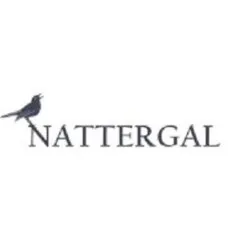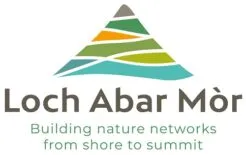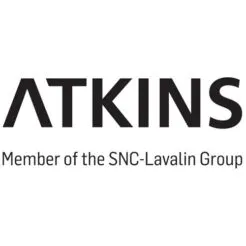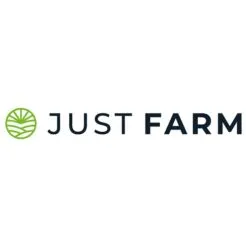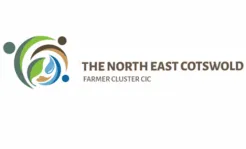Dr Caitlin Hafferty is a social scientist at the Environmental Change Institute, University of Oxford. Her work explores how environmental governance can deliver effective, equitable, and lasting solutions to interconnected nature, climate, and social challenges. Her research is driven by a commitment to bridging the gap between theory and practice, experimenting with different ways of doing policy-relevant social science that challenges the assumption that ‘rigorous research’ and ‘real-world impact’ are separate domains, but are instead always combined through collaboration, participatory approaches, and the co-production of knowledge.
Caitlin’s work spans:
- Governance and participation: designing fair, collaborative, and place-based decision-making for transformative change.
- Science-policy interface: how knowledge, power, and innovation in ‘in-between spaces’ shape environmental policy and organisational learning.
- Risk, uncertainty, and complexity: understanding how these affect policy, finance, and community empowerment in nature recovery and NbS.
She led the co-design of the Recipe for Engagement guidance, which is now embedded in over eight landscape-scale projects and has informed emerging standards for community engagement and co-benefits in nature markets. Alongside her research, she holds expert advisory roles for wide range of organisations, including the British Standards Institute, BirdLife International, the Nature Finance Certification Alliance, and Oxfordshire’s Local Nature Recovery Strategy. Her approach to impact-oriented, interdisciplinary, and collaborative research has been recognised with the School of Geography and the Environment’s Impact and Engagement Award (2025) and Award for Excellence (2025).
Caitlin holds a PhD in Environmental Planning (ESRC-funded) from the Countryside and Community Research Institute, MSc in Social Science Research Methods, MSc in Sustainability, Planning, and Environmental Policy, and BSc in Human Geography (Cardiff University). She is a Fellow of the Royal Geographical Society and Chair of the Participatory Geographies Research Group.
Practitioner resources on community engagement:
- The ‘Recipe for Engagement’ (RfE) for nature recovery and NbS.
- The Recipe for Engagement (RfE) launch webinar. (Slides here)
- The Highlands Rewilding Community Engagement Roadmap.
- The Nattergal Report on Stakeholder Engagement Best Practice for Landscape-scale Nature Recovery (led by Joshua Davis, Countryside and Community Research Institute). A blog post summary of the report’s impact is here.
- Podcasts: ‘Rewilding: People and Participation’ with guests from Highlands Rewilding and the CCRI; ‘Stakeholder engagement for landscape-scale nature recovery’ with guests from Nattergal and the CCRI.
- Natural England report on embedding an evidence-led, best practice culture of engagement in environmental organisations.
You can find a full list of Caitlin’s publications here.
Related News Articles
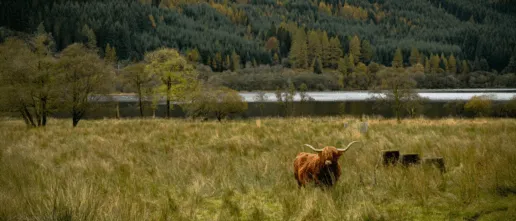
From Urgency to Participation: It is important that nature recovery initiatives can ‘slow down’ to embrace community engagement & local knowledge.
Allegra Bundy, MSc student, reflects on the participatory process and key findings of her dissertation project, ‘From Urgency to Participation: Navigating Complexities in Nature Recovery in the Scottish Highlands’.
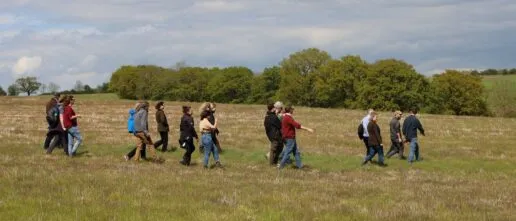
Stakeholder Engagement Best Practice – Nattergal’s Ten-Point Approach
Effective stakeholder engagement is key to improved land-use decision-making, natural resource management, and achieving mutually beneficial outcomes for individuals, communities, and places.

How do perceptions of risk shape nature finance?
Caitlin Hafferty, Postdoctoral Researcher in the Centre, has recently been awarded an Oxford Policy Engagement Network (OPEN) Fellowship to conduct a project on understanding the impact of risk and uncertainty on high-integrity nature markets in the UK.
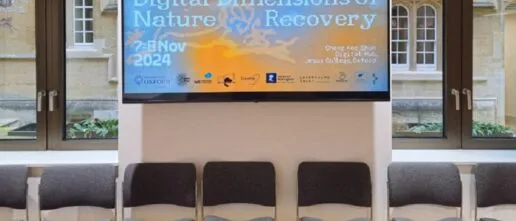
Beyond ‘technical fixes’: Digital Dimensions of Nature Recovery conference provokes debate at the interface between theory and application
Noemi Duroux, Lotti Jones, Caitlin Hafferty, and Jonathon Turnbull reflect on the 2024 Digital Dimensions of Nature Recovery conference,
Related Research Themes

Society
Encompassing the governance and socio-cultural dimensions of nature recovery.

Policy engagement for nature recovery
We work with policy-makers to foster effective approaches to nature recovery, using the Centre's unique evidence-base and compelling stories about nature and its value to society.
Related Projects

Participatory governance of nature recovery and Nature-based Solutions.
Co-designing knowledge, evidence, and practitioner guidance for engagement processes that enhance the delivery of benefits for people, nature, and climate

Risky Nature Recovery
How can the governance of nature recovery embrace uncertainty to support transformative change?

Evenlode Landscape Recovery
Lead by the North East Cotswold Farming Cluster and funded by DEFRA as apart of the Environmental Land Management schemes, the project aims to expedite the transition to a financially and environmentally sustainable farming system through nature recovery efforts.

Social ecological mapping for nature recovery
Developing social ecological maps for land use planning, investment and inclusive decision-making.

Institutional innovations for nature recovery
A power-sensitive and multi-level analysis of institutions involved in pursuing landscape scale nature recovery and their intersection with questions of equity and justice in the UK and Ghana.

Governing sustainable finance for effective and equitable nature recovery
Developing a typology of financing models for nature recovery and assessing how different modalities of finance shape dynamics of equity, collaboration and conflict in nature recovery.

Innovative methods to connect and communicate between disciplines
Establishing evidence-based methods to bridge scientific fields for nature recovery.

Database of Scottish nature recovery projects
We will build a database of all nature recovery projects and organisations in Scotland.

How do we scale up nature-based solutions in the UK?
Working with its partners and stakeholders, this project is assessing the potential for nature-based solutions to contribute to national climate, biodiversity and economic targets, understand the social and practical obstacles to NbS, and strengthen tools and guidance for decision makers. Outputs are aimed at supporting key policy processes including net zero strategy, nature recovery, economic recovery, levelling up and climate change adaptation.
Related Outputs
Equity in unilateral value chain policies: A monitoring framework for the EUDR and beyond
Unilateral value chain policies have recently emerged as a key strategy of international land use governance. They’re part of a broader trend towards trade-based environmental policies, from corporate due diligence to sustainability certification and trade moratoria, that has been critiqued for reinforcing inequities in global trade. Such critique has been heightened by the current rise […]
The Nattergal Report on Stakeholder Engagement Best Practice for Landscape-scale Nature Recovery Projects
The Nattergal Report on Engagement Best Practice for Landscape-scale Nature Recovery Projects. Developed for our Boothby Wildland Landscape Recovery project, and funded by DEFRA, the report was led by the Countryside and Community Research Institute (CCRI) at the University of Gloucestershire and the Leverhulme Centre for Nature Recovery and Agile Initiative projects at Oxford University, […]
Unpacking the politics of Nature-based Solutions governance: Making space for transformative change
Pre-print paper on the politics of Nature-based Solutions governance for transformative change. This paper finds that dominant framings can end up undermining, rather than supporting, the changes that are needed for transformation to happen. Techno-centric and market-oriented approaches, perceptions of risk and uncertainty, and “democracy washing” risk perpetuating power imbalances and superficial participation. Making space […]
Unpacking the politics of Nature-based Solutions governance: Making space for transformative change
Nature-based Solutions (NbS) have gained global attention for their transformative potential to simultaneously address biodiversity loss, climate change, and human well-being. However, there are concerns that dominant framings reinforce vested interests, marginalise alternative perspectives, and lead to persistent patterns of inequality and injustice. While participatory governance of NbS is widely acclaimed to support more equitable […]
Engagement in the digital age: Understanding “what works” for participatory technologies in environmental decision-making
Paper published in the Journal of Environmental Management examining the benefits and drawbacks of digital tools for engagement. The paper tests the applicability of current theories for engagement in digital and remote settings, finding that key factors known to shape outcomes in engagement take on new dimensions in digital environments. New considerations are suggested which make engagement […]
Nature-based Solutions Knowledge Hub
The Nature-based Solutions Knowledge Hub is an integrated one-stop resource to guide users through the process of governance, designing and funding Nature-based Solutions (NbS), and monitoring the outcomes. The Hub is aimed at those involved with NbS in the UK, though much of the guidance would also be applicable in other locations. Visit the Knowledge […]
Embedding nature recovery in the Levelling-up and Regeneration Bill Agile Initiative Research Brief
This research brief compiles evidence from the academic literature to demonstrate the vital role that nature can plan in securing health, well-being, and socio-economic benefits for the deprived communities targeted by the levelling-up programme.
Embedding nature recovery in the Levelling-up and Regeneration Bill Agile Initiative Research Brief
This research brief compiles evidence from the academic literature to demonstrate the vital role that nature can plan in securing health, well-being, and socio-economic benefits for the deprived communities targeted by the levelling-up programme.
Harnessing the power of digital tools for community engagement in rewilding
Social science researchers from the Leverhulme Centre for Nature Recovery are collaborating with Highlands Rewilding to explore innovative digital technologies for enhancing community engagement in rewilding. To help bring multiple partners together across the landscapes, Highlands Rewilding and the LCNR have co-developed three digital community engagement platforms using software called Commonplace. The Commonplace team provides […]
WEBINAR: Unlocking the power of engagement for nature recovery and nature-based solutions
This webinar is relevant for anyone working in the on-the-ground delivery, design and/or strategy of a broad range of nature recovery and nature-based solutions projects which aim to benefit both people and nature. This includes conservation, restoration, rewilding, urban greening, community gardening, sustainable forestry, regenerative agriculture, and more. It is aimed at practitioners working on […]
Unlocking the power of engagement for nature recovery and nature-based solutions
The ‘Unlocking the power of engagement for nature recovery and nature-based solutions’ webinar took place on 20th February 2024 and was aimed at anyone working in the on-the-ground delivery, design and/or strategy of a broad range of nature recovery and nature-based solutions projects which aim to benefit both people and nature. This includes conservation, restoration, rewilding, […]
Just nature recovery: A framework for centring multispecies and multi-dimensional justice in land management
Highlights Justice considerations can be overlooked in the planning and delivery of nature recovery projects. Multispecies justice and multi-dimensional justice offer alternative framings of justice and how it can be achieved. Integrating MSJ and MDJ approaches can inform nuanced analyses of nature recovery projects. We consider the different justice concerns in a range of examples […]
Interdisciplinary Catalyst Activities – Field Work Tennis
In pairs, participants engage in back-and-forth conversations that are constructed to either accept or reject suggestions from the offering partner, with role-playing around an environmental research/restoration theme. This layered activity helps think through interdisciplinary critique as productive—rather than a hinderance—in research design and execution. More information on the wokshop this activity was developed for here […]
Interdisciplinary Catalyst Activities – Object of Significance
Three groups engage in role-play, each group independently develops their own ‘rituals’ around a provided object, and these are then shared. The activity helps think about research and decision making when meanings placed on objects and ideas in the environment are different or in conflict between groups of people. More information on the wokshop this […]
Response to the consultation from the Department for Energy Security and Net Zero on the implementation of the UK government’s principles for voluntary carbon and nature market integrity
Comments from the Leverhulme Centre for Nature Recovery


